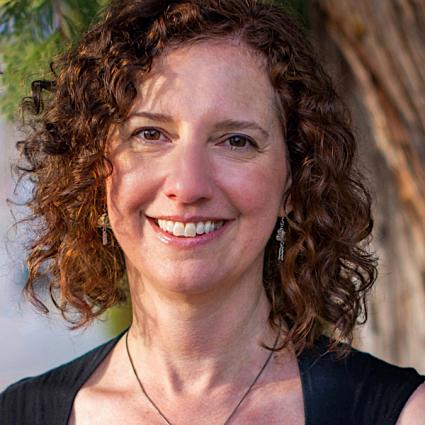Erica Gies is an award-winning independent journalist who writes about water, climate change, plants and critters for Scientific American, the New York Times, Nature, The Atlantic, The Guardian, National Geographic, The Economist, Washington Post, bioGraphic, Wired, and more.
Her stories hail from North America, especially California and British Columbia, and the wider world. In a quest for commonalities that bind us and innovations that inspire, she has reported from many intriguing places: Iraq, Peru, Cambodia, India, Syria, Kenya, China, Qatar, Laos, the United Kingdom, Guyana, Vietnam, France, and Indigenous nations and territories, including those belonging to Navajo (Diné), Kwiakah, Makushi, Kitasoo/Xai’xai, ‘Namgis, Heiltsuk, and Native Hawaiian peoples.
Her book, Water Always Wins: Thriving in an age of drought and deluge, is about what she calls “slow water” innovations that are helping us adapt to the increasing floods and droughts brought by climate change. As a keynote speaker and moderator, she talks about environmental issues she covers, especially the Slow Water movement, documented in Water Always Wins. She has presented on NPR’s Science Friday, and at schools including Princeton, Stanford, U.C. California’s Institute for Water Resources, U.C. Santa Barbara’s Capps Center for the Study of Ethics, Religion, and Public Life; and at conferences such as the American Water Resources Association, the Water Education Foundation, River Restoration Northwest, and Eco-Farm.
Erica is a National Geographic Explorer, served as a staff editor at various publications, and cofounded and edited two environmental news startups, Climate Confidential and This Week in Earth. She studied journalism and holds a master’s degree in literature, with a focus in eco-criticism. Growing up in the San Francisco Bay Area, she spent childhood vacations camping and hiking in state and national parks and swimming in any body of water she came across.
